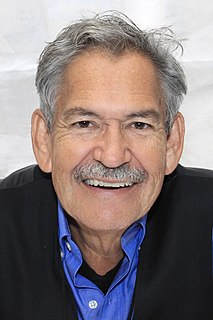A Quote by Ellen Hopkins
I'm sad. Pressed down by sorrow. I'm angry. Pissed at God, if there is one, and the way things are. I'm scared. Confused by the whys. Why are we here? Is there, really, some intelligent design? Why do we cry for someone who leaves us if there's some Grand Pearly Gate in the sky? Why worry about how we build our lives if the ultimate ending for all is death, a single breath away? (358)
Related Quotes
Think about how many of us have wondered why we don't fit, why our faith doesn't stabilize us, why we seem so out of sync with most of the world. Genuine faith is the isolating force in our lives that creates tension wherever we go. To put it another way, faith is the unbalancing force in our lives that is the fruit of God's disturbing presence.
My father once told me that a happy ending is just the place where you choose to stop telling the story. So this is where I choose to stop. More things are still going to happen, of course, some good, some bad. Some things never get any better. When people die they stay dead. None of us knows why we love, or why we stop loving, or why everyone we love we lose.
Science tries to answer the question: "How?" How do cells act in the body? How do you design an airplane that will fly faster thansound? How is a molecule of insulin constructed? Religion, by contrast, tries to answer the question: "Why?" Why was man created? Why ought I to tell the truth? Why must there be sorrow or pain or death? Science attempts to analyze how things and people and animals behave; it has no concern whether this behavior is good or bad, is purposeful or not. But religion is precisely the quest for such answers: whether an act is right or wrong, good or bad, and why.
I am a nonbeliever myself. But I think there's so much about religion that is not factual in nature as to why people engage with it and what it means to them. You can debunk why you think there's no physical evidence for God and why the story of Jesus didn't really happen that way and stuff like that all the live-long day, and it's not going to make a difference to what role religion has in people's lives and how they feel about it and how it makes their lives better or worse.
We all travel different roads to our ultimate destinations. For some of us the path is rockier than for others. But no one reaches the end without feeling some form of adversity. So rather than fight it, why not accept it as the way of life? Why not detach yourself from the outcomes and simply experience every circumstance that enters your life to the fullest?
Secrets are my currency: I deal in them for a living. The secrets of desire, of what people really want, and of what they fear the most. The secrets of why love is difficult, sex complicated, living painful and death so close and yet placed far away. Why are pleasure and punishment closely related? How do our bodies speak? Why do we make ourselves ill? Why do you want to fail? Why is pleasure hard to bear?
We are not wise enough, pure enough, or strong enough to aim and sustain such a single motive over a lifetime. That way lies fanaticism or failure. But if the single motive is the master motivation of God's calling, the answer is yes. In any and all situations, both today and tomorrow's tomorrow, God's call to us is the unchanging and ultimate whence, what, why, and whither of our lives. Calling is a 'yes' to God that carries a 'no' to the chaos of modern demands. Calling is the key to tracing the story line of our lives and unriddling the meaning of our existence in a chaotic world.







































